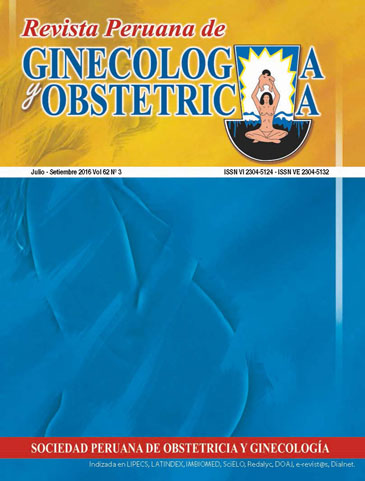Diagnosis of cavum vergae during the third trimester of pregnancy
DOI:
https://doi.org/10.31403/rpgo.v62i1926Abstract
Anterior midline intracranial cysts may be found in three forms: cavum septum pellucidum, cavum vergae, and cavum veli interpositi. Cavum vergae is an extension of the cavum septum pellucidum heading in a posterior direction, past the anterior pillars of the fornix and the foramina of Monro. Although not present in all fetuses, it may be misdiagnosed as a cyst of the interhemispheric line during prenatal ultrasound evaluation, with an uncertain prognosis. We report the case of an 18-year-old pregnant woman who attended to prenatal consult at 32 weeks. Ultrasound evaluation found a rectangular, intracranial, eco-negative cystic lesion, 20 mm wide and 12 mm long, as well as presence of corpus callosum, and no features of compressive hydrocephalus. All cerebral structures were normal. Karyotype was normal. Diagnosis of cavum vergae cyst was considered. A normal newborn was obtained after spontaneous vaginal birth. Magnetic resonance after birth confirmed the diagnosis.Downloads
Download data is not yet available.
Downloads
Published
2016-10-18
How to Cite
Navarro Briceño, Y., Santos Bolívar, J., & Reyna Villasmil, E. (2016). Diagnosis of cavum vergae during the third trimester of pregnancy. The Peruvian Journal of Gynecology and Obstetrics, 62(3), 299–302. https://doi.org/10.31403/rpgo.v62i1926
Issue
Section
Casos Clínicos
















